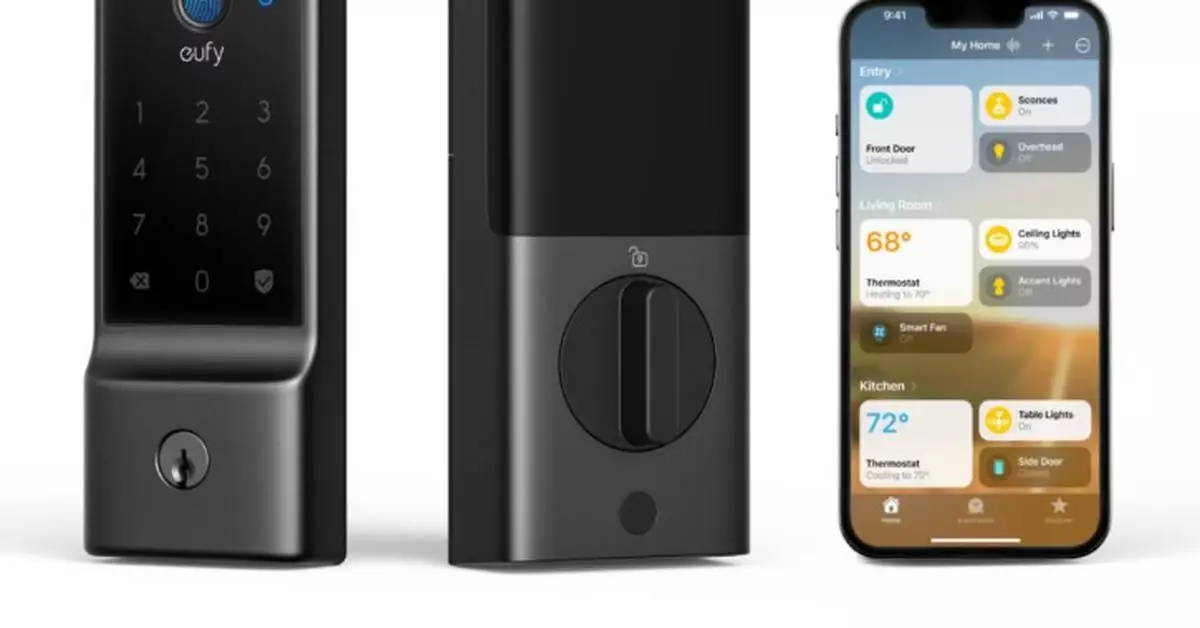The smart home technology landscape is continuously evolving, with innovations emerging almost every day that aim to simplify and enhance our daily lives. One of the most exciting advancements is the Eufy Smart Lock E30, which stands out as the first product from Eufy to support the Matter smart home connectivity standard. In this article, we will explore the features and implications of this groundbreaking device, as well as the insights it brings to the broader trends in smart home security.
The Eufy Smart Lock E30, priced at $169.99, separates itself from previous locks not only through its appealing functionality but also its connectivity. By operating over the Thread protocol, which is a low-power, mesh-networking system, the E30 is designed to provide quicker response times, prolonged battery life, and a more stable connection compared to traditional locks that rely on Wi-Fi or Bluetooth. This is particularly important for a device like a smart lock, which is often positioned at the furthest edges of Wi-Fi coverage, where connectivity can be spotty.
Moreover, the E30’s compatibility with the Matter standard is a significant step forward for the integration of smart home devices. As various platforms such as Apple Home, Amazon Alexa, and Google Home adopt this unified standard, the E30 becomes an integral player in a home automation ecosystem. However, users must also invest in a Matter controller to take full advantage of these features, which highlights a level of complexity that could deter some potential consumers.
Eufy has designed the E30 with multiple access methods that cater to a range of user preferences. In addition to traditional key entry, the lock features a fingerprint scanner for biometric access and a keypad for keycode entry. This multifaceted approach enhances security by allowing users to choose how they want to unlock their doors. Additionally, users can manage the lock remotely using the Eufy app, which provides the convenience of controlling entry points from anywhere.
Integrating the lock into daily routines offers a significant advantage—being able to set schedules or control access through voice commands revolutionizes the way homeowners interact with their entrances. However, while Eufy has made strides in creating a user-friendly experience, it remains to be seen how intuitive the app’s interface will be for non-tech-savvy individuals.
The E30 operates with eight AA batteries, boasting an impressive claim of up to eight months of battery life. This is crucial given that smart locks are frequently used and require consistent power for their connectivity features. The anticipated release of a rechargeable lithium version also points to a more sustainable direction for the company, catering to an eco-conscious consumer base. Nonetheless, it raises questions on the reliability of rechargeable options compared to traditional batteries—will they provide equivalent longevity?
The move towards greater efficiency is commendable, particularly when considering global trends toward sustainable living. However, it also poses significant questions about user expectations. Consumers may need to adapt their perceptions of upkeep and battery replacement, as the experience can vary vastly between different lock technologies.
With limited options for smart locks that support Matter and operate via Thread, Eufy might firmly establish itself in this niche market. Competitors such as Schlage and Yale have begun to acknowledge the movement toward Matter-enabled devices, yet Eufy is currently positioned advantageously as one of the first movers in an exciting and growing segment.
However, Eufy’s previous models had certain design choices that raised eyebrows, suggesting that while functionality is robust, aesthetic considerations may have been an afterthought. As the smart home market benefits from a burgeoning array of designs, Eufy must begin to elevate the form alongside function if it aims to remain at the forefront.
The Eufy Smart Lock E30 exemplifies innovation and practicality that addresses crucial needs in smart home security. By fusing advanced technology with versatile user experiences, it embraces emerging standards like Matter and Thread. Nonetheless, it also encounters hurdles like connectivity complexity, user adaptability, and an evolving marketplace. As smart home technology continues to advance, Eufy’s future will depend on its ability to navigate these challenges while continuing to innovate and refine its offerings. The E30 is a promising beginning, and it will be exciting to witness how it evolves in a fast-paced industry.

